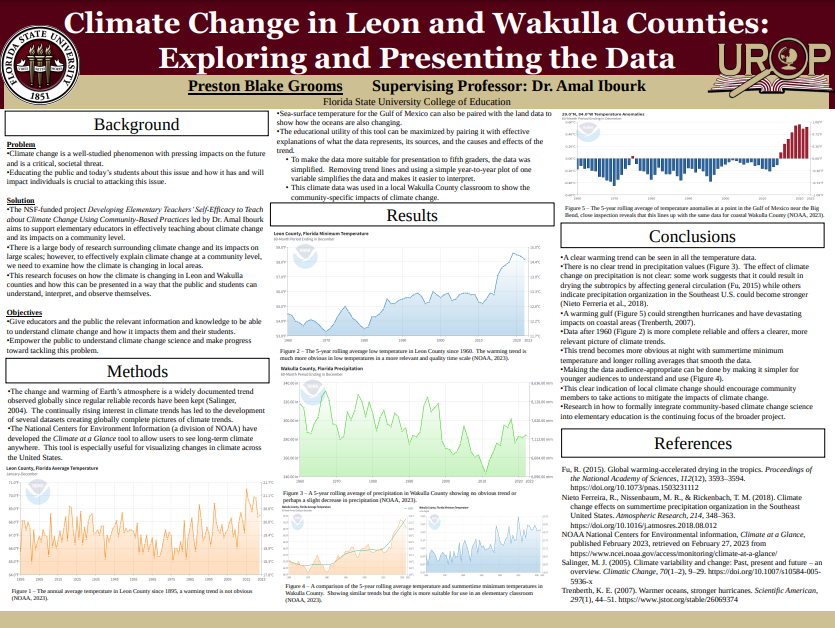Research Symposium
23rd annual Undergraduate Research Symposium, April 6, 2023
Preston Grooms Poster Session 4: 4:00 pm - 5:00 pm/ Poster #329

BIO
I am a sophomore meteorology major from West Union, Ohio. I have been fascinated by weather since a young age and am aiming to become a forecaster at the National Weather Service. I am most interested in the best ways to communicate weather and its impacts. I work for Intramural Sports and am involved in the N. Florida Chapter of the American Meteorological Society on campus.
Climate Change in Leon and Wakulla Counties: Exploring and Presenting the Data
Authors: Preston Grooms, Amal IbourkStudent Major: Meteorology
Mentor: Amal Ibourk
Mentor's Department: Science Education Mentor's College: College of Education Co-Presenters:
Abstract
Climate change poses a distinct threat to communities across the Big Bend of Florida. Understanding and educating others about how the climate is changing is crucial. The best way to demonstrate climate change at a community level is to present specific data about climate change in local communities. The National Centers for Environmental Information’s Climate at a Glance offers quality-controlled temperature data at several spatial and temporal resolutions, including the Big Bend for over a century. Using this dataset, the changing climate of Leon and Wakulla counties can be demonstrated with several different parameters (e.g. temperature and precipitation). Examining and presenting climate trends in an understandable and audience-specific way can enhance climate and science literacy in affected communities. This data can be used to simply, yet completely explain how the climate is changing to educators, students, and the public. Climate data can bridge the gap between people’s observations about a changing climate and science. Using climate data on a local scale will allow residents of a community to understand how the complicated nature of a changing global climate is affecting them. The data shows that Leon and Wakulla county temperatures are trending upward over the last century which can be seen in overall and minimum temperatures, especially in the summer months. This trend affects communities in a myriad of ways, all demonstrating the importance of understanding climate change. This is important for motivating and encouraging communities to take action to avoid the worst impacts of climate change.
Keywords: climate change, education, community

